Apps that help couples conceive have been on the rise in recent years. There are a few different types of fertility apps, but all of them work in a similar way. They allow couples to track their menstrual cycle and other signs of fertility, and then provide tips and advice on how to improve their chances of getting pregnant. Some apps also have features that help couples track their ovulation cycle, which is important for choosing the best time to try to conceive. In this article, we will enumerate the best fertility apps and what you should know about them.
Table of Contents
Best fertility apps of 2022

Fertility apps have become increasingly popular in recent years, as couples seek ways to improve their chances of conceiving. Here are the five best fertility apps of 2022.
Ovia
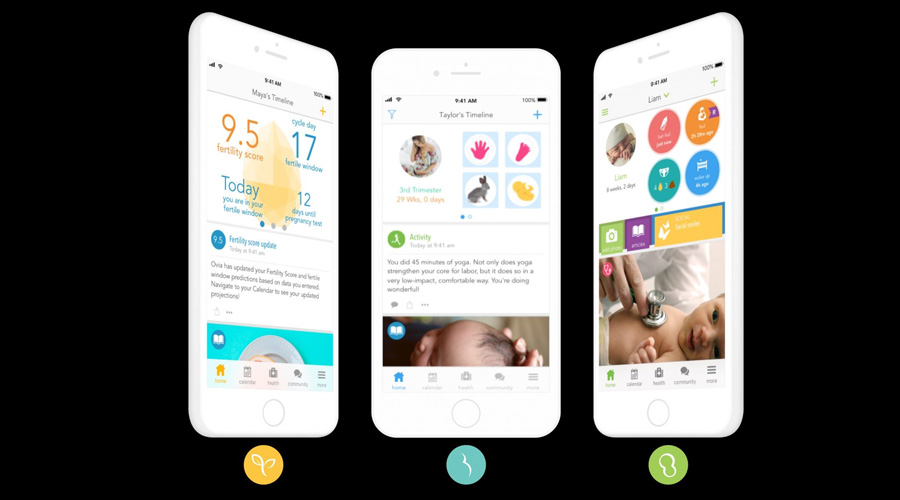
Ovia is an ovulation tracker or a fertility application that helps couples achieve pregnancy. It uses a combination of personal information, such as your menstrual cycle, health history, and sexual activity, and physical data, such as your temperature and cervical mucus, to help you better understand your fertility. Ovia also offers tips on how to improve your chances of getting pregnant and provides resources for navigating the fertility process.
The free app lets you record all sorts of details like your cycle type, length, how long you’ve been trying to conceive, and even cervical fluid. It gives you a daily fertility score between one and 10 on how likely you are to conceive on a particular day and will also tell you what your ovaries are doing, or preparing to do, at each stage in your cycle.
Ovia uses proprietary algorithms based on cutting-edge fertility research to track your cycle and predict your exact ovulation and fertile window. Ovia is thought to be one of the most accurate ovulation calculators and fertility trackers.
Flo
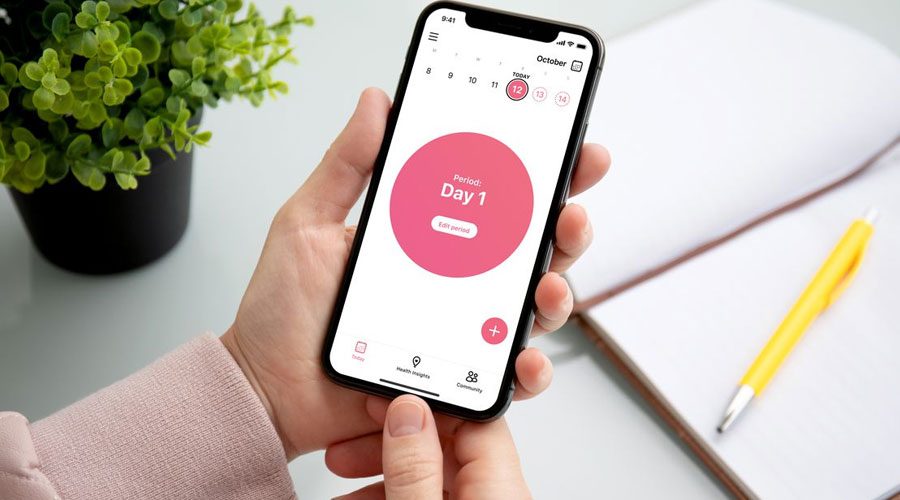
Flo is a fertility app that helps users track their fertility and achieve their fertility goals. The app provides a variety of tools to help users track their cycles, understand their fertility levels, and make informed decisions about their fertility treatments. Flo lets users input basic information about their cycle, such as the days of the week they are bleeding, and it will give them a prediction for when they are likely to conceive. Flo is available on both iOS and Android devices.
Kindara
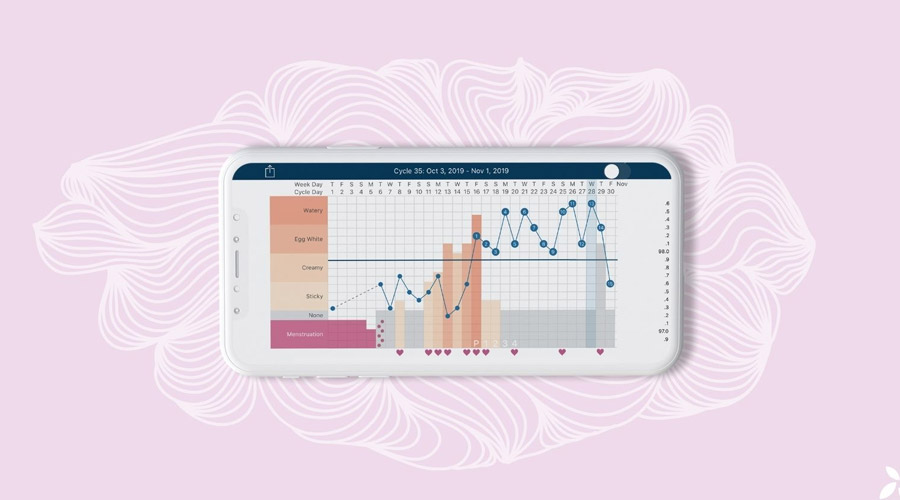
Kindara is a fertility application or an ovulation tracker that uses a combination of cognitive and behavioral therapies to help couples conceive. The app tracks both daily and weekly data to help identify any potential issues or obstacles in a couple’s fertility journey. It also offers customizable exercises, videos, and articles to help couples learn more about their reproductive health. It helps couples conceive by providing information on fertility, ovulation, and sexual health. The app also offers tips and advice on how to improve sexual health and increase fertility.
Kindara calls itself the “most sophisticated fertility app available.” It comes paired with a wireless basal body temperature thermometer to make charting a breeze. Based on the fertility awareness method, Kindara is a free ovulation calculator, BBT chart and period calendar. It allows users to track their periods, when they have sex, pregnancy test results and gives them ovulation predictions.
Glow
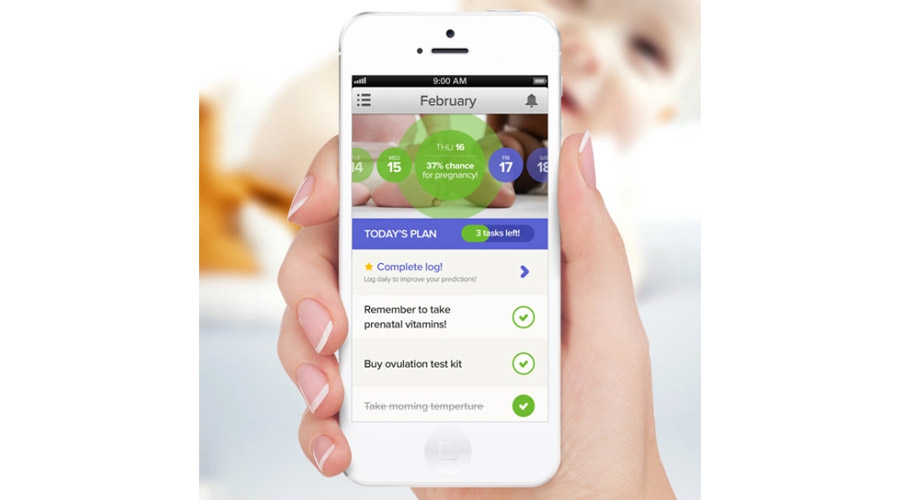
Glow is a fertility app designed to help couples conceive by tracking their fertility daily. Glow connects to users’ health records and other online accounts, allowing it to track things like ovulation, menstruation, and temperature data. The app sends users daily reminders about their ovulation and fertility patterns, along with tips for improving fertility. The app provides advice on fertility-enhancing habits, such as exercise and diet, and connects users with local fertility clinics. Glow is available for free on iOS and Android platforms.
Clue
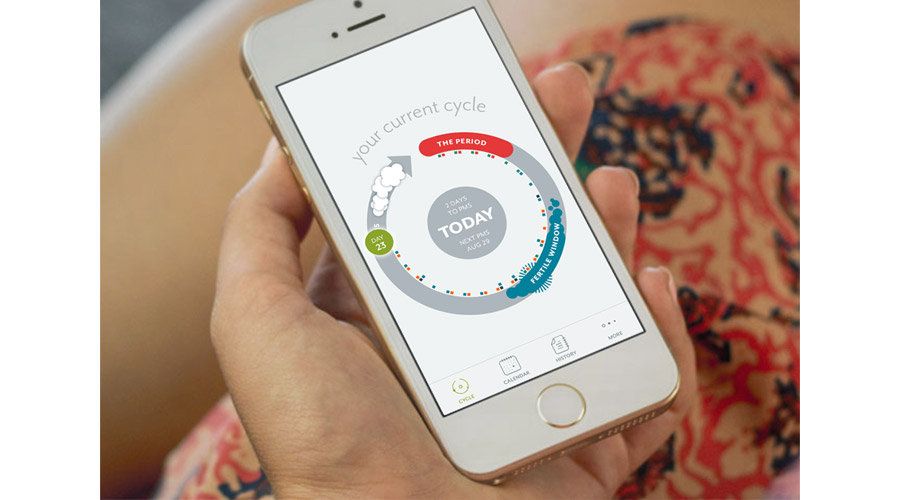
Clue is a fertility application created to aid couples to conceive by tracking their fertility symptoms and providing tips on how to improve chances of conceiving. Clue was created by a team of fertility experts who wanted to create an app that was both user-friendly and informative. The app includes a symptom tracker, daily tips, and a community forum where users can ask questions and share advice. The app is available for free on both Android and iOS devices.
Ava
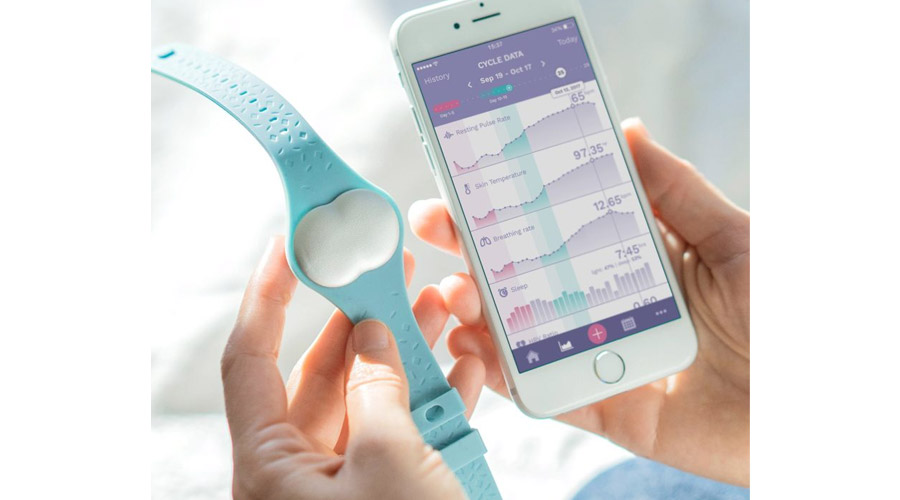
Ava is a fertility app that was created with the purpose of helping couples struggling to conceive. The app allows users to track their cycle, record their symptoms and monitor their progress. It also includes a variety of different tools to help couples improve their chances of conceiving.
The app also provides tips on how to improve fertility, as well as tools for tracking your ovulation cycle. Ava was created by a team of reproductive health experts with over 20 years of experience. The app is free to download and use, and it provides information on contraception, sex, and pregnancy. Ava also has a forum where users can ask questions and exchange tips.
Note that Ava isn’t right for you if you’re taking hormonal birth control, experience very irregular cycles or have PCOS.
Natural Cycles
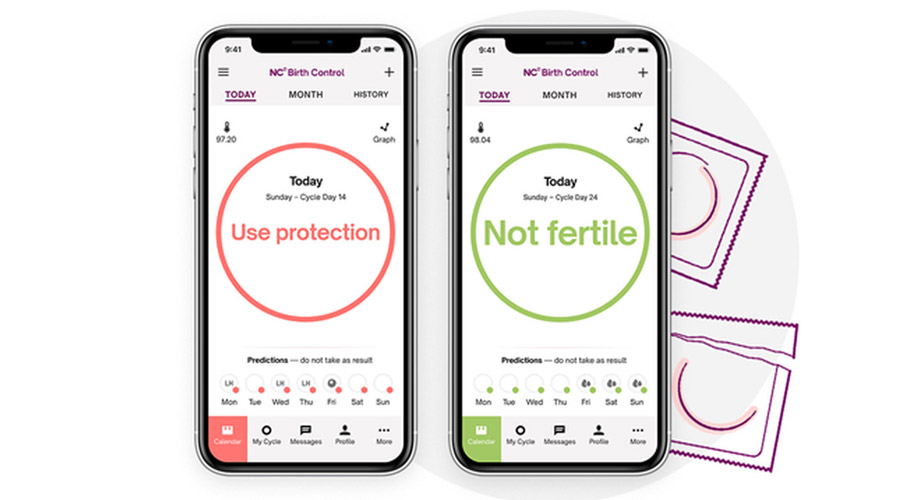
Natural Cycles is an app designed to help women track their fertility. The app uses a algorithm that takes into account both your menstrual history and the temperature data collected from your phone.
This allows the app to predict when you’re most likely to conceive, and provide tips on how to improve your chances of getting pregnant. Natural Cycles has been praised for its user-friendly design and its accurate predictions.
Period Tracker by GP apps
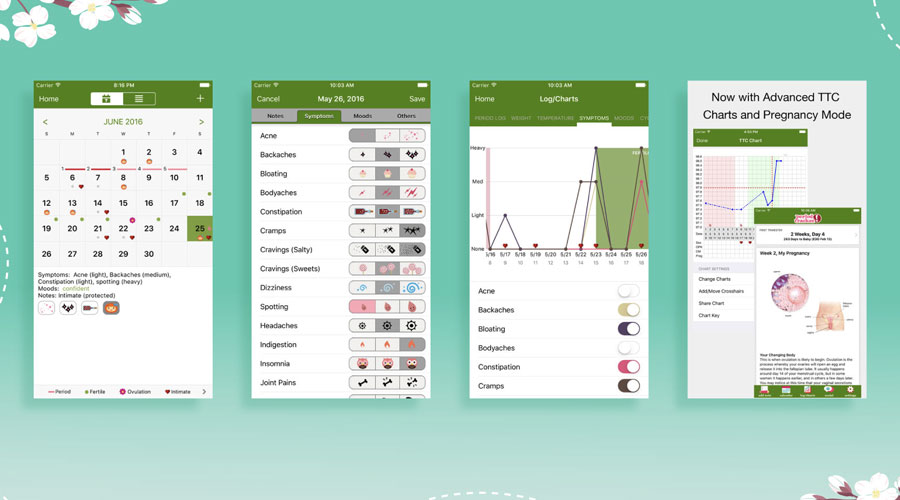
Period Tracker is a fertility app that helps women track their menstrual cycles and analyze their data to help them better understand their fertility. The app has a daily, weekly, and monthly view, as well as an event log that tracks when ovulation occurred. The app also provides tips on how to improve fertility with its fertility timer that helps women track their daily ovulation period. Period Tracker is available for free on the App Store and Google Play.
Inference
In conclusion, there are many fertility apps available, but not all of them are created equal. Before you download one, be sure to read the reviews and decide which one is best for you. Most fertility apps become more accurate the more you use them, so you may want to download one and use it for a few months prior to when you want to begin trying to conceive. It’s also important to be consistent.
While apps can help women be more aware of their menstrual cycle, it’s important to regularly see a physician discuss your birth control options and family planning.
FAQ
What is the best fertility app to get pregnant?
There are many fertility apps on the market, but which is the best?
Some popular fertility apps include Natural Cycles, Fertility Friend, and Ovia. Each app has its own benefits and drawbacks, so it’s important to choose one that will work best for you.
Before using an app to get pregnant, be sure to read the reviews and compare features to find the best option for you.
How accurate is the fertility app?
Apps like Natural Cycles and Glow can be incredibly helpful when trying to conceive, but how accurate are they? A study published in the journal Fertility and Sterility looked at the accuracy of fertility apps on two different platforms- Apple’s iPhone and Android devices.
The study found that the apps were accurate in predicting ovulation 84% of the time on iPhone and 82% of the time on Android.
What is the most accurate fertility tracker?
There are a number of fertility trackers on the market, but which is the most accurate?
Some popular devices include the Ovulation Predictor Kit and the Fertility Monitor, both of which claim to be 95% accurate. However, there is no scientific evidence to support these claims. Another option is the fertility tracker app which is less expensive but may not be as accurate. Ultimately, it is important to choose a fertility tracker that fits your lifestyle and personal needs.
Can you trust fertility apps?
There are a growing number of fertility apps on the market that promise to help couples conceive. But are they really effective? Some experts say that you can’t always trust these apps, and that you should consult with a doctor before using them. There is no one definitive answer, as the effectiveness of fertility apps will vary depending on your specific situation.
